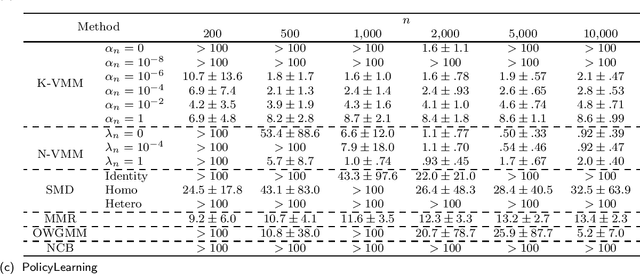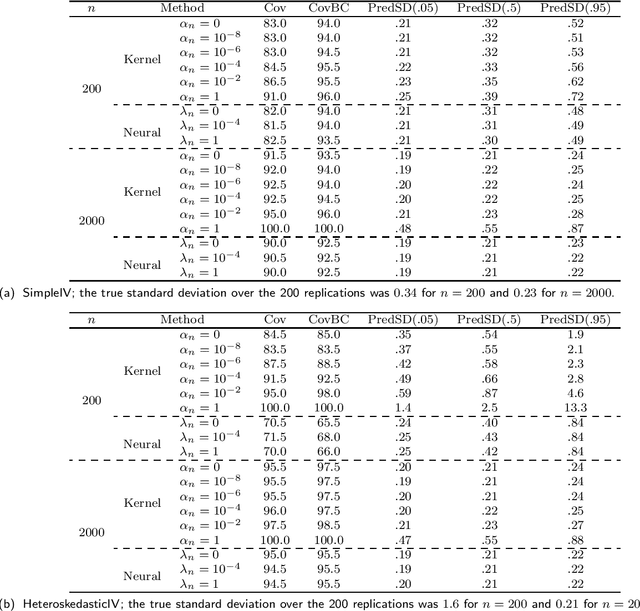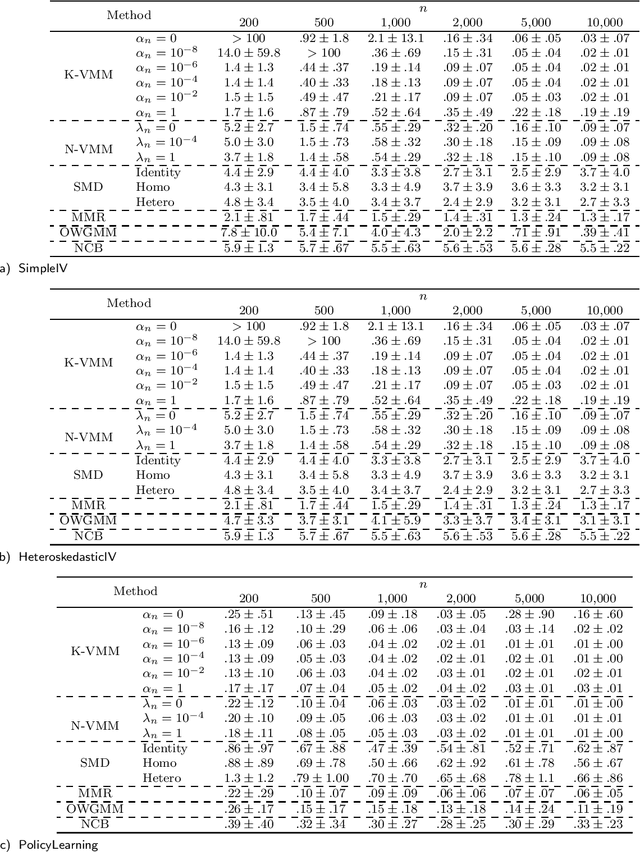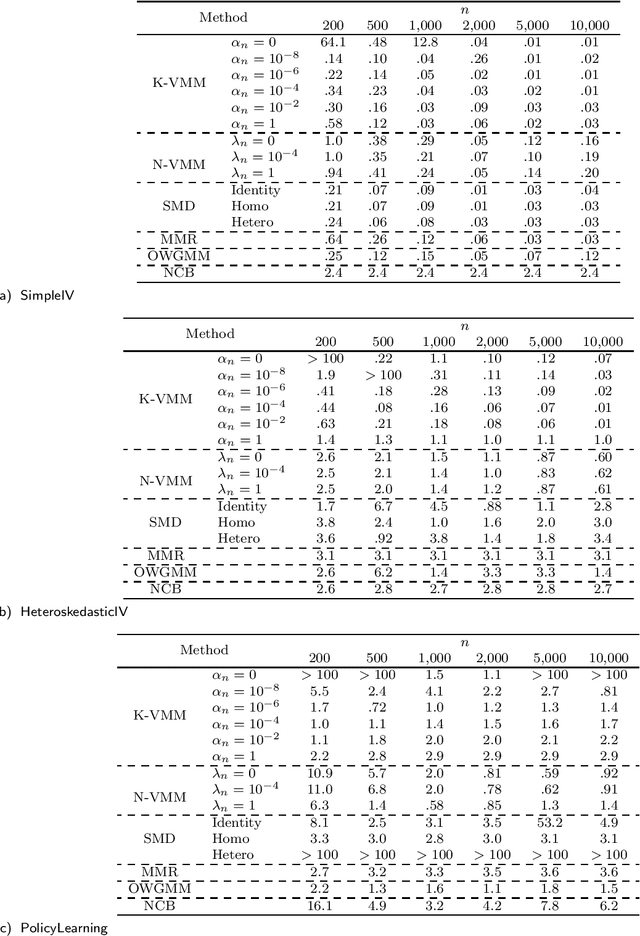The Variational Method of Moments
Paper and Code
Dec 17, 2020



The conditional moment problem is a powerful formulation for describing structural causal parameters in terms of observables, a prominent example being instrumental variable regression. A standard approach is to reduce the problem to a finite set of marginal moment conditions and apply the optimally weighted generalized method of moments (OWGMM), but this requires we know a finite set of identifying moments, can still be inefficient even if identifying, or can be unwieldy and impractical if we use a growing sieve of moments. Motivated by a variational minimax reformulation of OWGMM, we define a very general class of estimators for the conditional moment problem, which we term the variational method of moments (VMM) and which naturally enables controlling infinitely-many moments. We provide a detailed theoretical analysis of multiple VMM estimators, including based on kernel methods and neural networks, and provide appropriate conditions under which these estimators are consistent, asymptotically normal, and semiparametrically efficient in the full conditional moment model. This is in contrast to other recently proposed methods for solving conditional moment problems based on adversarial machine learning, which do not incorporate optimal weighting, do not establish asymptotic normality, and are not semiparametrically efficient.
 Add to Chrome
Add to Chrome Add to Firefox
Add to Firefox Add to Edge
Add to Edge